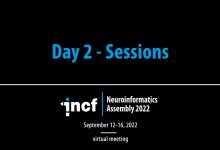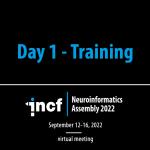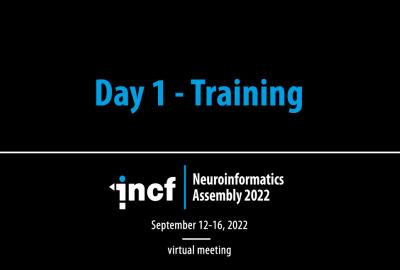Sessions from the INCF Neuroinformatics Assembly 2022 day 1.
INCF Assembly 2022 - Day 1 Sessions
Since their introduction in 2016, the FAIR data principles have gained increasing recognition and adoption in global neuroscience. FAIR defines a set of high level principles and practices for making digital objects, including data, software and workflows, Findable, Accessible, Interoperable and Reusable. But FAIR is not a specification; it leaves many of the specifics up to individual scientific disciplines to define. INCF has been leading the way in promoting, defining and implementing FAIR data practices for neuroscience. We have been bringing together researchers, infrastructure providers, industry and publishers through our programs and networks.
To address the question of what anatomical structures and physiological processes in the human brain give rise to consciousness would require countless studies, and critically, the aggregation of data across them. Yet, the lack of infrastructure to aggregate results in a consequential way, poses great challenges for researchers to fully understand the extent of a research study - including the experimental context, the methodology, analysis, stability of the results and data. This lesson describes how the development of FAIR workflows will address that need, unleashing the possibility to better understand the ‘hard problem’ of consciousness.
Accurate reporting is critical for transparent, reproducible, replicable, FAIR-compliant research in the scientific record, and allows advanced forms of meta-science to be conducted. Two recent initiatives that address this challenge are ARTEM-IS and eCOBIDAS. Both are community collaborations that aim to design tools that facilitate detailed methodology documentation in neuroscience. These projects engage in broad consultation to maximise ease of use, clarity and specificity in the tools.
F1000 has upheld an Open Data policy on F1000Research and our Partner Platforms since 2014. Over this time, we have gained extensive experience in aiding authors in presenting and publishing the data support their publications. Through the workshop we will present how we go about supporting our authors in sharing their data through traditional and non-traditional article types, and how these practices can support discoverability and reuse of this data.














